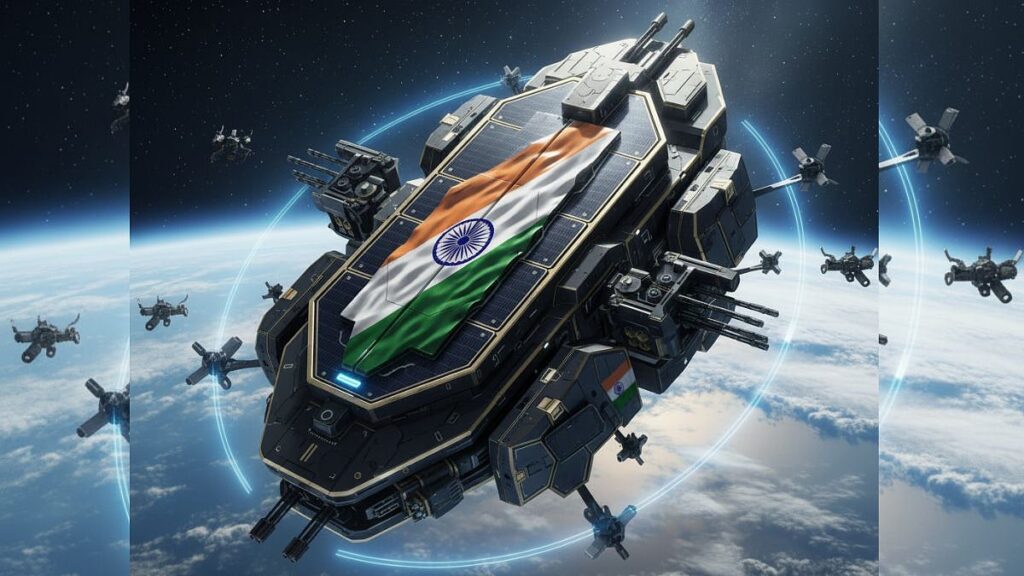**India Advances ‘Bodyguard’ Satellites to Protect Growing Space Assets Amid Rising Orbital Threats**
As India intensifies efforts to safeguard its expanding network of space assets, the nation is exploring the deployment of specialised ‘bodyguard’ satellites aimed at shielding critical orbital infrastructure from emerging threats. This strategic initiative, currently under development, responds to escalating concerns over vulnerabilities in space—especially following a near-miss incident in mid-2024 that highlighted the risks posed by hostile maneuvers in orbit.
According to reports from Bloomberg and Indian media, these bodyguard satellites are envisioned as vigilant sentinels, orbiting alongside India’s vital satellites to provide real-time threat detection and rapid response capabilities. Equipped with cutting-edge sensors, these protective spacecraft seek to counter risks such as signal jamming, cyberattacks, or physical interference from adversarial satellites, ensuring the safety of assets critical both to national security and civilian applications.
The Indian government aims to develop these so-called bodyguard satellites to identify and neutralise threats against orbiting spacecraft. Central to modern space warfare concepts, these satellites will feature high-level maneuverability and be pre-positioned to protect high-value military satellites. Operating in close proximity, they can detect vulnerabilities of threat satellites and counteract with robotic technologies or lasers, providing surveillance and active defense of space assets.
While detailed designs remain confidential, the proposed bodyguard satellites are expected to incorporate advanced technologies such as Light Detection and Ranging (LiDAR) systems. These laser-based sensors generate precise 3D maps of nearby orbital objects, enabling faster and more accurate threat detection compared to conventional radar. Coupled with an enhanced ground-based tracking network—including upgraded radars and optical telescopes—these satellites will provide continuous monitoring and have the agility to manoeuvre protected assets out of harm’s way.
The bodyguard service will utilise small satellites equipped with on-orbit space domain awareness capabilities to identify and characterise potential threats to government or commercial critical infrastructure. This allows for real-time monitoring of the space environment and ubiquitous coverage surrounding critical assets.
### A Broader Strategic Program
This initiative forms part of a larger Rs. 27,000 crore (approximately $3.2 billion) program to bolster India’s space defenses. The program includes plans to launch around 50 dedicated surveillance satellites by the end of the decade. The first bodyguard satellites could become operational as early as 2026, with the Indian Space Research Organisation (ISRO) collaborating closely with private startups to accelerate development.
“We currently lack round-the-clock in-orbit tracking capabilities, but innovative startups are stepping up to bridge this gap,” said Sudheer Kumar N, a former ISRO director now consulting independently.
### A Wake-Up Call in Orbit
The drive for bodyguard satellites was sparked by a tense encounter in 2024, when an ISRO satellite operating in low-Earth orbit (LEO) at 500-600 kilometers (311-373 miles) narrowly avoided a collision with a foreign satellite that came within 1 kilometre. This Indian satellite, used for high-resolution Earth imaging and real-time monitoring with dual civilian and military applications, was at risk in what Indian officials suspect was a deliberate demonstration of orbital power by a neighboring state.
The incident required urgent evasive maneuvers and exposed the vulnerability of India’s unescorted orbital assets in an increasingly crowded and contested space environment.
With over 100 active satellites supporting navigation, communication, and reconnaissance, India ranks among the world’s leading space powers. However, the nation faces growing challenges from regional rivals such as China, which operates over 930 satellites, and Pakistan, with eight.
During recent border skirmishes with Pakistan, ISRO’s satellites proved indispensable—over 400 scientists worked tirelessly to provide real-time Earth observation and secure communications. Reports also suggest China adjusted its satellite coverage to support Pakistan, intensifying India’s concerns about potential orbital sabotage.
### Geopolitical Stakes and the Global Context
India’s pursuit of bodyguard satellites signals a broader shift in its space policy—from a predominantly civilian focus to one prioritising national security.
India’s 2019 Mission Shakti anti-satellite (ASAT) test, which successfully destroyed a target at 300 km altitude, demonstrated its capability to counter space-based threats. However, incidents like the 2020 Galwan Valley clash with China have amplified fears that asymmetric warfare will extend into space, where satellites may be disabled to disrupt military operations.
Globally, similar concepts are gaining traction. The U.S. Space Force is developing space domain awareness tools, including robotic satellites for inspection and repair, while China and Russia have tested co-orbital systems capable of interfering with or destroying satellites.
Speaking at a seminar in June 2025, Indian Air Marshal Ashutosh Dixit highlighted China’s expanding satellite program as a pressing challenge, urging robust countermeasures to safeguard India’s interests in space.
### Challenges and Criticisms
While the bodyguard satellite program aims to enhance India’s space security, some critics warn it may fuel an arms race in space, potentially conflicting with the 1967 Outer Space Treaty. The treaty prohibits nuclear weapons in space but leaves ambiguous the status of conventional defensive or offensive space systems.
Indian officials maintain the initiative is strictly defensive—designed to protect critical assets rather than escalate tensions in the increasingly strategic domain of outer space.
—
India’s development of bodyguard satellites marks a significant evolution in its approach to space security, reflecting the complex realities of a contested orbital environment and the growing importance of space assets for national defense and civilian applications alike.
https://www.freepressjournal.in/tech/what-are-these-bodyguard-satellites-that-india-looks-to-employ-to-safeguard-its-space-assets

